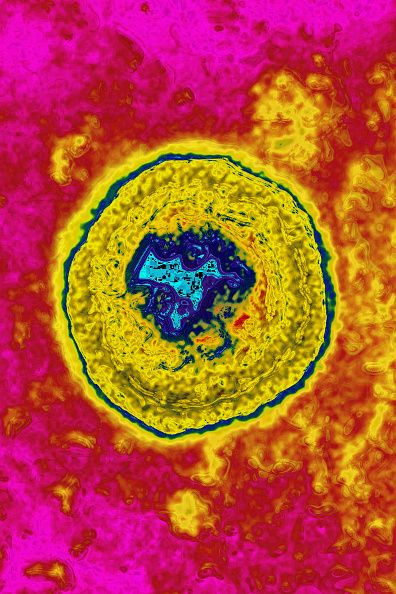How Many People Have Herpes? The Number Is Higher Than You Think But Scientists May Have Developed A Way To Fight It
Everyone under the age of 50 has the herpes virus that triggers cold sores on the mouth, the World Health Organization reported in its first study of the disease two years ago.
Over 3.7 billion people younger than 50 years old carry the herpes simplex virus type 1 (HSV-1) after contracting it during childhood. Four hundred and 17 million people ranging in ages 15-49 also carry the disease in another form, HSV-2, which can trigger genital herpes.
So how did roughly 4 billion people end up with illness and what can be done to fight it? It's based on the virus' way of infecting, which basically sidesteps your immune system, staying in your body for an entire lifespan.
“Access to education and information on both types of herpes and sexually transmitted infections is critical to protect young people’s health before they become sexually active,” says Dr. Marleen Temmerman, Director of WHO’s Department of Reproductive Health and Research.

Scientists debate whether contact with other person's bodily fluids, like sweat, can transfer herpes or not. Multiple studies have suggested that skin-to-skin contact can transmit HSV-1 and HSV-2. Though other reports state that in order to contract the disease, there needs to be actual contact and friction
READ: Biocon Launches Psoriasis Drug In India; To File IND Application With US FDA This Fiscal
The HSV-1 form of the disease usually leads to mouth ulcers as opposed to genital infection. However, it is becoming an increasing cause of genital infection too, mainly in rich countries like the United States.
Better hygiene in wealthy countries is leading to a decrease in HSV-1 infection rates during childhood, raising the risk of young people catching it through oral sex.
Based on the fact that HSV-2 percentages are way higher in women and minority groups than in the general population, and most people don't even know that they carry it, herpes is the most easily transmitted venereal disease.
Up until now, herpes has resisted long-term treatment and there is no FDA-approved drug or treatment for delaying or preventing cold sore outbreaks.
"We really need to accelerate the development of vaccines against herpes simplex virus, and if a vaccine designed to prevent HSV-2 infection also prevented HSV-1, it would have far-reaching benefits,” Sami Gottlieb, a WHO medical officer told Reuters.
However, based on the results of a 54-patient clinical trial at Massachusetts General Hospital in Boston, a new way to combat the spread herpes is in the works. It is a new immunotherapy process which was developed by Squarex, LLC, of St. Paul.
Researchers say that the clinical trial showed that topical application of the Squarex drug was successful in cutting the occurrence of future outbreaks.
Clinical trials reported that patients had at least six cold sore outbreaks over the previous 12 months before entering the trial.
While more testing is happening to prove these results, researchers are saying the clinical trial showed that one topical application of the Squarex drug showed effectiveness in reducing long-term cold-sore recurrence.
After one topical application of the drug, the time between outbreaks was tripled as compared to a placebo. Forty days for the placebo group versus in comparison to 122 days for the group receiving the actual Squarex drug.
Because the herpes virus also leads to genital herpes, Squarex President Dr. Hugh McTavish said that the company would like to start testing the drug on the genital disease soon.
© Copyright IBTimes 2024. All rights reserved.





















